Runtime Error 217 is a common error that can occur when you try to open an application on Windows 11 or Windows 10. This error can prevent you from using the program and cause frustration. But what causes this error and how can you fix it? In this blog post, we will explain the possible causes of Runtime Error 217 and provide some solutions that might work for you.
![How To Fix Runtime Error 217 [Step-By-Step Guide] 2 Runtime Error 217](https://malwaretips.com/blogs/wp-content/uploads/2023/03/af988cdd-7534-49cf-999c-ec0e2dc9f1d7.jpg)
What Causes Runtime Error 217?
Runtime Error 217 can have different causes depending on the program that triggers it. However, some of the common causes are:
- Incomplete download package: If you downloaded the program from an unreliable source or if the download was interrupted, some files might be missing or corrupted. This can lead to Runtime Error 217 when you try to run the program.
- Corrupted registry entries: The registry is a database that stores information about your system and programs. Sometimes, the registry entries related to a program can get corrupted due to malware infection, improper uninstallation, or other reasons. This can cause Runtime Error 217 when you try to launch the program.
- Outdated or incompatible drivers: Drivers are software components that enable your hardware devices to communicate with your system and programs. If your drivers are outdated or incompatible with your system or program, they can cause Runtime Error 217 when you try to use them.
- Incorrect regional settings: Some programs require specific regional settings to function properly. If your regional settings do not match the requirements of the program, you might encounter Runtime Error 217 when you try to open it.
- Visual C++ Redistributable issues: Visual C++ Redistributable is a package that contains libraries and components that are required by many programs written in C++. If this package is missing, corrupted, or outdated, it can cause Runtime Error 217 when you try to run a program that depends on it.
How to Fix Runtime Error 217?
Depending on the cause of Runtime Error 217, there are different solutions that you can try. Here are some of them:
1. Run the DISM and SFC scans
To fix Runtime Error 217, we can run the DISM (Deployment Image Servicing and Management) and SFC (System File Checker) scans. These are built-in Windows tools that can repair corrupted or missing system files and restore the health of your Windows image. Both DISM and SFC scans can be run from an elevated command prompt (with administrative privileges). Here are the steps to do so:
- To open the Command Prompt as an administrator in Windows, type “cmd” in the search bar and then right-click on the Command Prompt result and select “Run as administrator” as shown in the image below.
![How To Fix Runtime Error 217 [Step-By-Step Guide] 3 Run CMD As Administrator](https://malwaretips.com/blogs/wp-content/uploads/2022/12/CMD-as-Admin.jpg)
- To run a DISM scan, type the following command and press Enter:
dism /online /cleanup-image /restorehealth![How To Fix Runtime Error 217 [Step-By-Step Guide] 4 Windows 11 DISM](https://malwaretips.com/blogs/wp-content/uploads/2023/03/dism.jpg)
This will check your Windows component store for corruption and automatically fix any problems it finds. This process may take several minutes or longer depending on your system - To run an SFC scan, type in the Command Prompt the following command and press Enter:
sfc /scannow![How To Fix Runtime Error 217 [Step-By-Step Guide] 5 sfc /scannow](https://malwaretips.com/blogs/wp-content/uploads/2022/12/CMD-scannow.jpg)
This will scan all protected system files and replace any corrupted or missing ones with a cached copy. Wait for the scan to complete. It may take some time depending on your system configuration.
- After both scans are completed, you should restart your computer to apply any changes. Check to see if the issue is solved.
2. Repair Visual C++ Redistributable
Runtime Error 217 can occur because of issues with the Visual C++ Redistributable package that is required by some applications. This package could be corrupted or missing from your system. To repair it, you can follow these steps:
- Open the Run dialog box by pressing Windows + R keys.
- Type appwiz.cpl and click OK to open Programs and Features.
![How To Fix Runtime Error 217 [Step-By-Step Guide] 6 Microsoft Visual C++ Repair Step 1](https://malwaretips.com/blogs/wp-content/uploads/2023/03/visual.jpg)
- Find Microsoft Visual C++ 2015-2019 Redistributable (x86) and Microsoft Visual C++ 2015-2019 Redistributable (x64) in the list of installed programs and select them one by one.
![How To Fix Runtime Error 217 [Step-By-Step Guide] 7 Microsoft Visual C++ Repair Step 2](https://malwaretips.com/blogs/wp-content/uploads/2023/03/visual-2.jpg)
- Click Change and then Repair in the pop-up window.
![How To Fix Runtime Error 217 [Step-By-Step Guide] 8 Microsoft Visual C++ Repair Step 3](https://malwaretips.com/blogs/wp-content/uploads/2023/03/Visual-3.jpg)
- Follow the on-screen instructions to complete the repair process.
- Restart your computer and check if the error is resolved.
3. Reinstall program for which Runtime Error 217 occurs
One of the simplest ways to fix Runtime Error 217 is to reinstall the program that causes it. This can help you replace any missing or corrupted files and ensure that the program is compatible with your system. To reinstall a program on Windows, follow these steps:
- First, open Windows Settings by pressing Windows+I on your keyboard. You can also right-click your Start button and select “Settings” from the list.
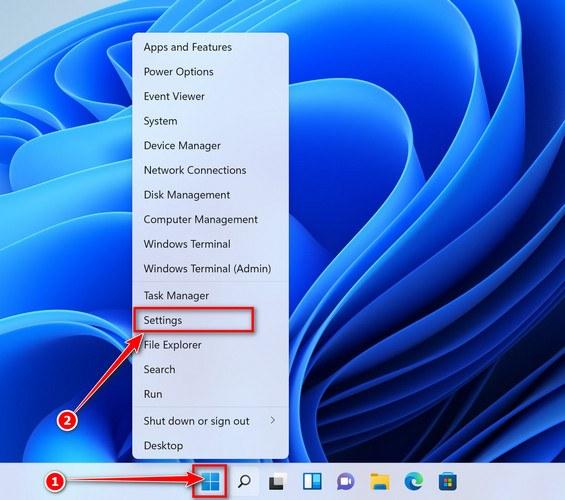
- When Settings opens, click “Apps” in the sidebar, then select “Apps & Features”.
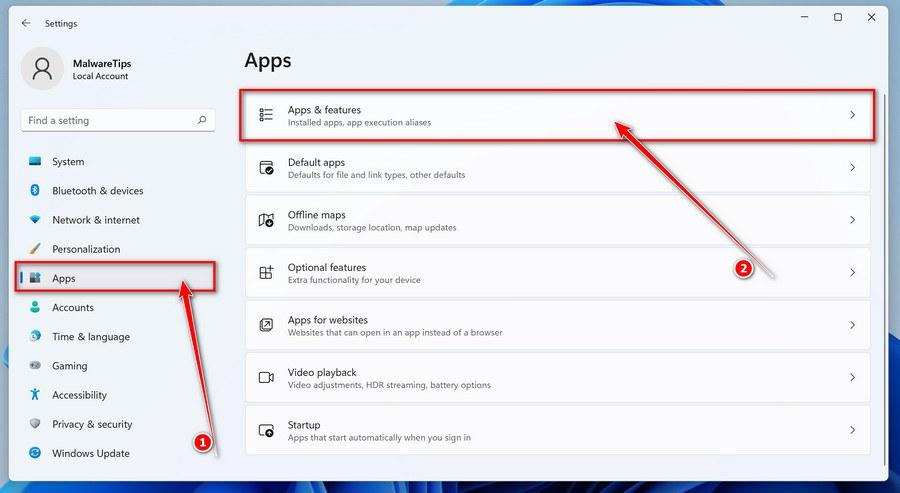
- In Apps & Features settings, scroll down to the app list and search for the program you want to uninstall. When you find the program, click the three dots button beside it and select “Uninstall” in the menu that appears.
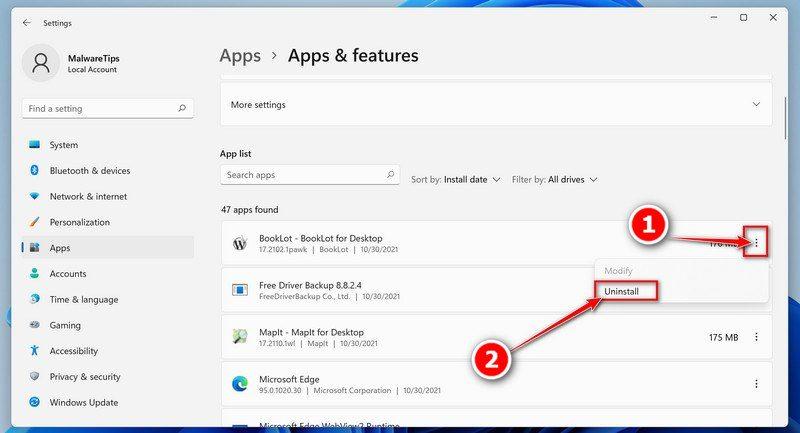
- In the next message box, confirm the uninstall process by clicking on Uninstall, then follow the prompts to uninstall the program.
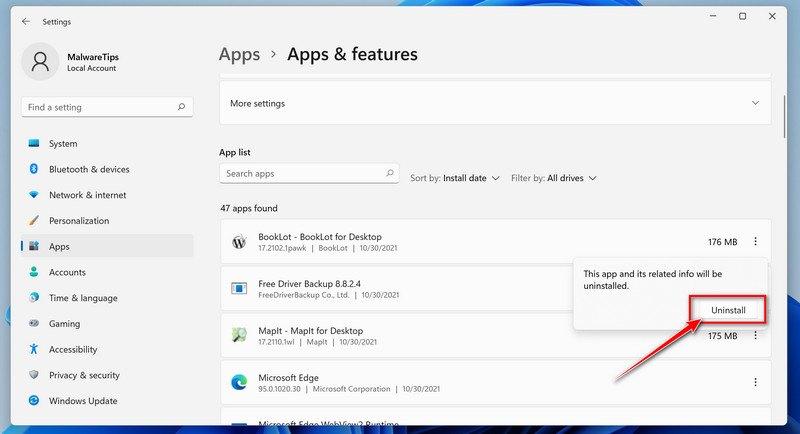
- Press the Windows key + I on your keyboard to open the Settings app. You can also ope the Settings app by clicking the Start button on the taskbar, then select “Settings” (gear icon).

- When the “Windows Settings” window opens, click on “Apps“. By default, it should open “Apps and Features” but if it doesn’t, select it from the list on the left.

- In Apps & Features settings, scroll down to the app list and search for the program you want to uninstall. When you find the program, click on it and select “Uninstall” in the menu that appears.
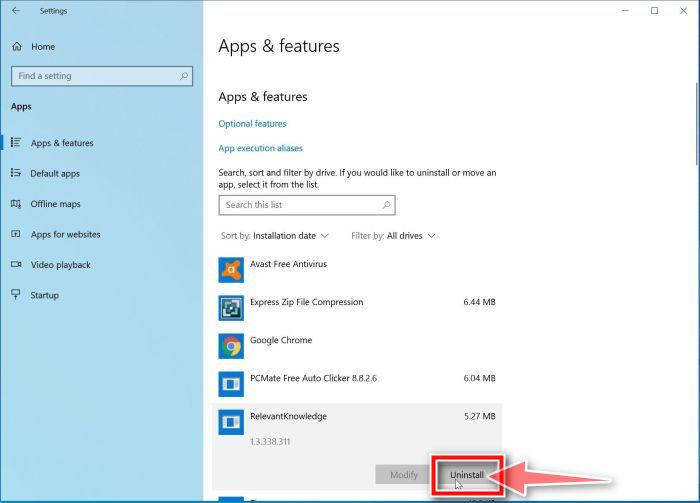
- In the next message box, confirm the uninstall process by clicking on Uninstall, then follow the prompts to uninstall the program.
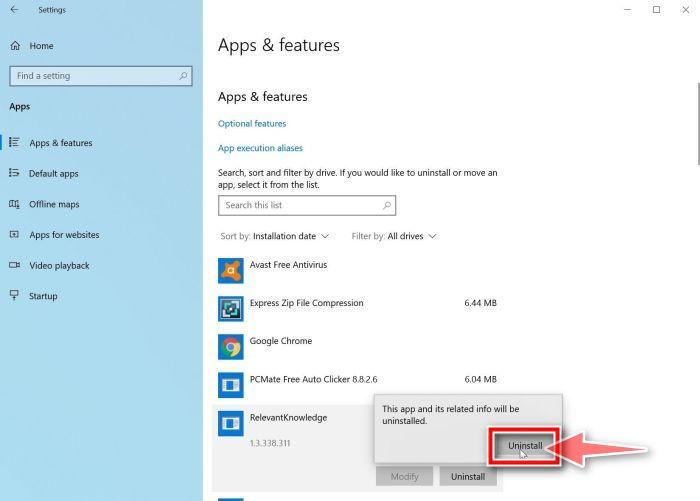
- Right-click on the Start button in the taskbar, then select “Programs and Features”. This will take you directly to your list of installed programs.
![How To Fix Runtime Error 217 [Step-By-Step Guide] 9 Right click on Start and select Programs and Features](https://malwaretips.com/blogs/wp-content/uploads/2020/04/Windows-8-1-Programs-and-Features.jpg)
- The “Programs and Features” screen will be displayed with a list of all the programs installed on your computer. Scroll through the list until you find the program, then click to highlight it, then click the “Uninstall” button.
![How To Fix Runtime Error 217 [Step-By-Step Guide] 10 Select program then click on Uninstall](https://malwaretips.com/blogs/wp-content/uploads/2020/04/Uninstall-Programs-in-Windows-8.jpg)
- In the next message box, confirm the uninstall process by clicking on Yes, then follow the prompts to uninstall program.
- Click on the “Start” button, then click on “Control Panel“.
![How To Fix Runtime Error 217 [Step-By-Step Guide] 11 Windows 7 go to Control Panel](https://malwaretips.com/blogs/wp-content/uploads/2020/04/windows-7-start-menu-control-panel.jpg)
- When the “Control Panel” appears, click on “Uninstall a Program” from the Programs category.
![How To Fix Runtime Error 217 [Step-By-Step Guide] 12 Select Uninstall program from Control Panel](https://malwaretips.com/blogs/wp-content/uploads/2020/04/uninstall-a-program-windows-7.jpg)
- The “Programs and Features” screen will be displayed with a list of all the programs installed on your computer. Scroll through the list until you find any suspicious or unknown program, then click to highlight it, then click the “Uninstall” button.
Look out for any suspicious program that could be behind all the drama – anything you don’t remember downloading or that doesn’t sound like a genuine program.
![How To Fix Runtime Error 217 [Step-By-Step Guide] 13 Uninstall malware from Windows 7](https://malwaretips.com/blogs/wp-content/uploads/2020/04/uninstall-Windows-7-Programs.jpg)
- In the next message box, confirm the uninstall process by clicking on Yes, then follow the prompts to uninstall program.
Restart your computer and download a fresh copy of the program from its official website or a trusted source. Check if you’re experiencing any issues.
4. Scan for malware
Another possible reason for Runtime Error 217 is a malware infection. Malware can damage your system files and registry entries and cause various errors. We will now, download and run a scan with Malwarebytes to check if you’re device is clean.
Malwarebytes is one of the most popular and most used anti-malware software for Windows, and for good reasons. It is able to destroy many types of malware that other software tends to miss, without costing you absolutely nothing. When it comes to cleaning up an infected device, Malwarebytes has always been free and we recommend it as an essential tool in the fight against malware.
You can download Malwarebytes by clicking the link below.
 MALWAREBYTES FOR WINDOWS DOWNLOAD LINK
MALWAREBYTES FOR WINDOWS DOWNLOAD LINK
(The above link will open a new page from where you can download Malwarebytes)When Malwarebytes has finished downloading, double-click on the MBSetup file to install Malwarebytes on your computer. In most cases, downloaded files are saved to the Downloads folder.
![How To Fix Runtime Error 217 [Step-By-Step Guide] 14 Download](https://malwaretips.com/blogs/wp-content/uploads/2022/04/Download-Malwarebytes.jpg)
You may be presented with a User Account Control pop-up asking if you want to allow Malwarebytes to make changes to your device. If this happens, you should click “Yes” to continue with the Malwarebytes installation.
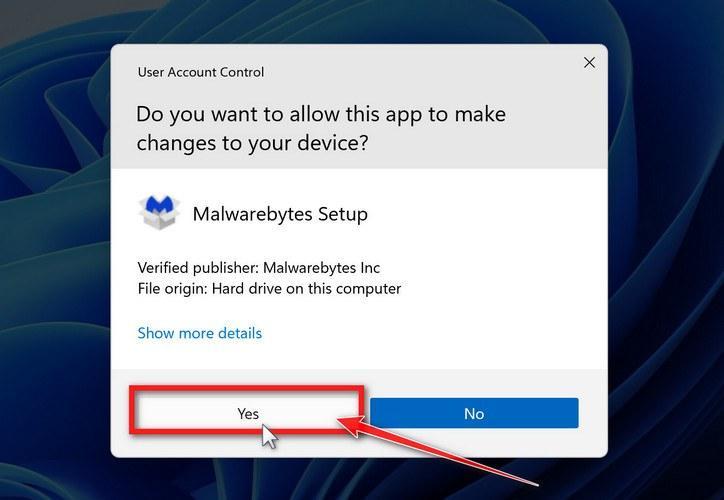
When the Malwarebytes installation begins, you will see the Malwarebytes setup wizard which will guide you through the installation process. The Malwarebytes installer will first ask you what type of computer are you installing this program on, click either Personal Computer or Work Computer.
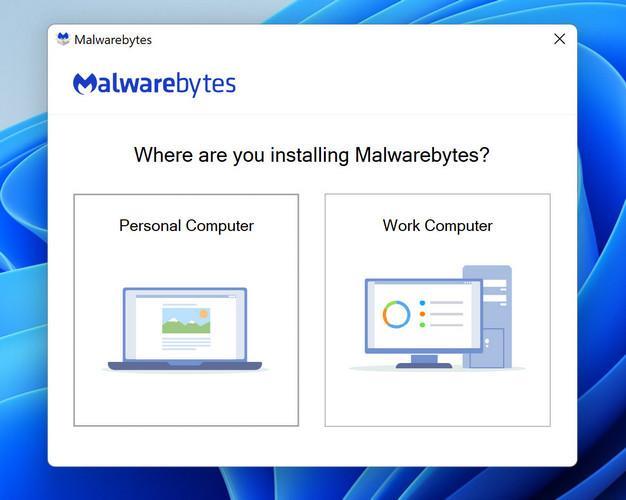
On the next screen, click “Install” to install Malwarebytes on your computer.
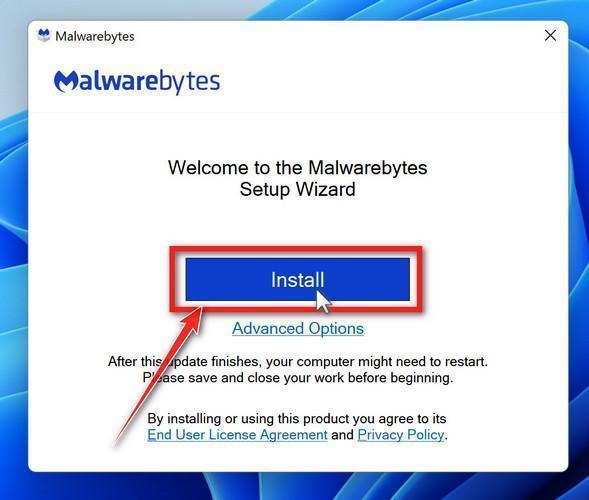
When your Malwarebytes installation completes, the program opens the Welcome to Malwarebytes screen.
Malwarebytes is now installed on your computer, to start a scan click on the “Scan” button. Malwarebytes will automatically update the antivirus database and start scanning your computer for malicious programs.
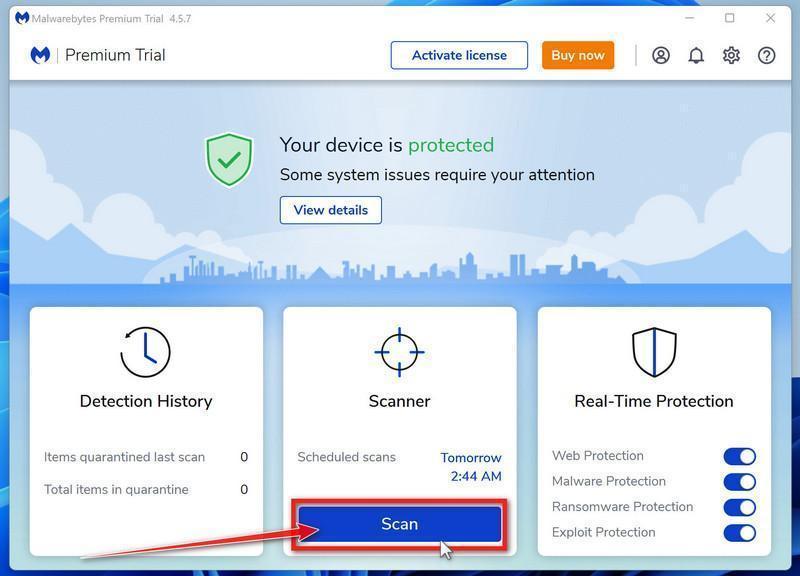
Malwarebytes will now scan your computer for browser hijackers and other malicious programs. This process can take a few minutes, so we suggest you do something else and periodically check on the status of the scan to see when it is finished.
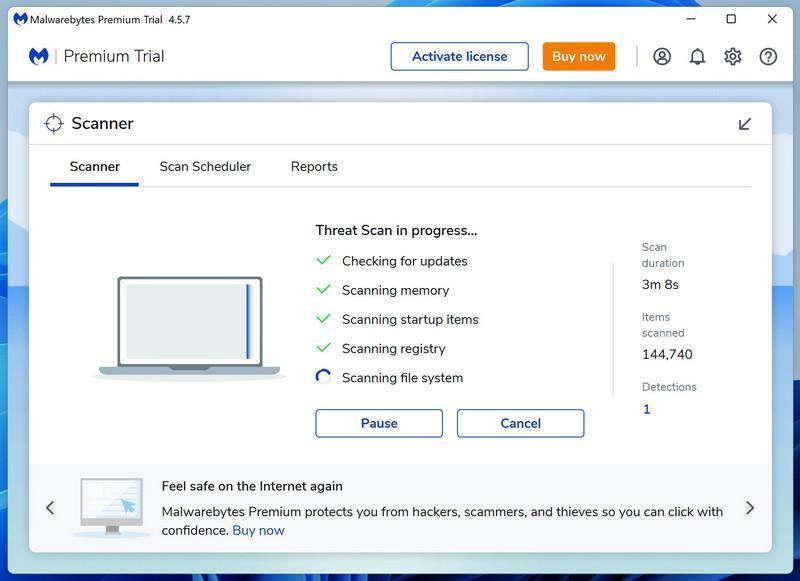
When the Malwarebytes scan is finished scanning it will show a screen that displays any malware, adware, or potentially unwanted programs that it has detected. To remove the malicious programs that Malwarebytes has found, click on the “Quarantine” button.
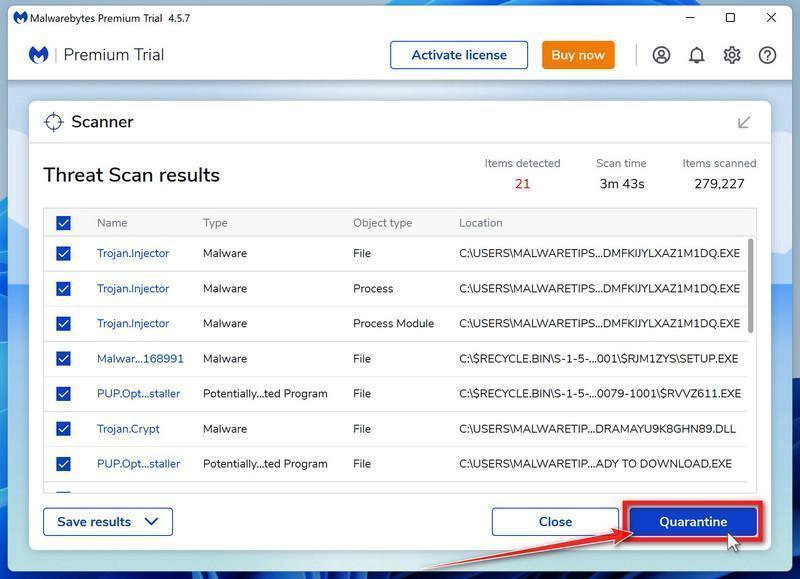
Malwarebytes will now remove all the malicious files and registry keys that it has found. To complete the malware removal process, Malwarebytes may ask you to restart your computer.
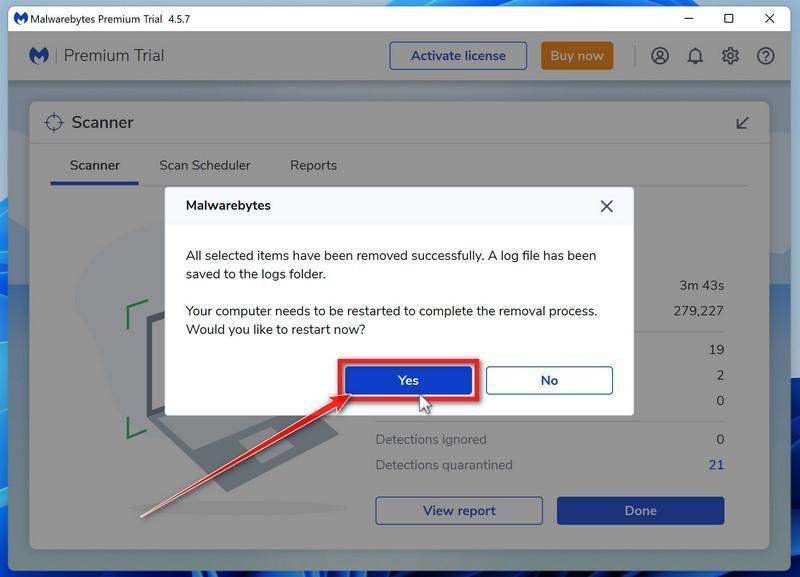
5. Adjust regional settings
Sometimes, Runtime Error 217 can be triggered by incorrect regional settings or date and time settings on your computer. This can affect how some applications interpret data formats and currencies. To fix this issue, you can follow these steps:
- Open Windows Settings by pressing Windows + I keys.
- Click Time & Language > Language & region.
![How To Fix Runtime Error 217 [Step-By-Step Guide] 15 language](https://malwaretips.com/blogs/wp-content/uploads/2023/03/language.jpg)
- Make sure that your country or region is correct under Country or region section.
- Click Additional date, time & regional settings under Related settings section.
![How To Fix Runtime Error 217 [Step-By-Step Guide] 16 Additional](https://malwaretips.com/blogs/wp-content/uploads/2023/03/Additional.jpg)
- Click Change date, time or number formats under Region section.
- Click Additional settings button under Formats tab.
- Make sure that Decimal symbol is set to “.” (dot) under Numbers tab.
- Click OK to save changes.
6.Update your drivers
Outdated or incompatible drivers can also cause Runtime Error 217, especially if they affect your graphics card, sound card, printer, scanner, or other devices that interact with the application. To update your drivers, you can use Windows Update, Device Manager, or a third-party driver updater tool. Alternatively, you can visit the manufacturer’s website and download the latest drivers for your devices manually.
For this step, we will use the built-in Device Manager feature:
To access the Device Manager, type “devmgmt.msc” into the search bar on the Start menu and select “Device Manager” from the list of results.
![How To Fix Runtime Error 217 [Step-By-Step Guide] 17 Open Device Manager](https://malwaretips.com/blogs/wp-content/uploads/2022/12/Device-manager-open.jpg)
In the Device Manager, you can view a list of all the hardware devices connected to your computer and check for any errors or issues. If you see a yellow exclamation point next to a device, it may indicate a problem with that device. You can right-click on the device and select “Update driver” or “Troubleshoot” to try and fix any issues.
![How To Fix Runtime Error 217 [Step-By-Step Guide] 18 Find Hardware Issues](https://malwaretips.com/blogs/wp-content/uploads/2022/12/Device-Manager.jpg)
7. Reset your PC
One of the most drastic solutions is to reset your PC to its default configuration. This can be considered the nuclear option for fixing Runtime Error 217 because it will wipe out all the third-party software you installed on your computer. However, this option can also be effective if none of the other methods work for you.
- Open Settings by pressing Windows + I keys.
- Click on System and then on Recovery.
![How To Fix Runtime Error 217 [Step-By-Step Guide] 19 Reset Windows PC Step 1](https://malwaretips.com/blogs/wp-content/uploads/2023/03/Reset-1.jpg)
- Under Reset this PC section, click on Reset PC button.
![How To Fix Runtime Error 217 [Step-By-Step Guide] 20 Reset Windows PC Step 2](https://malwaretips.com/blogs/wp-content/uploads/2023/03/reset-2.jpg)
- Choose whether you want to keep your files or remove everything.
![How To Fix Runtime Error 217 [Step-By-Step Guide] 21 Reset Windows PC Step 3](https://malwaretips.com/blogs/wp-content/uploads/2023/03/Reset-3.jpg)
- Follow the on-screen instructions to complete the process.
These are some of the most common methods to fix Runtime Error 217 on Windows. If none of them works for you, you may need to reinstall the application that causes the error or contact its developer for further assistance



